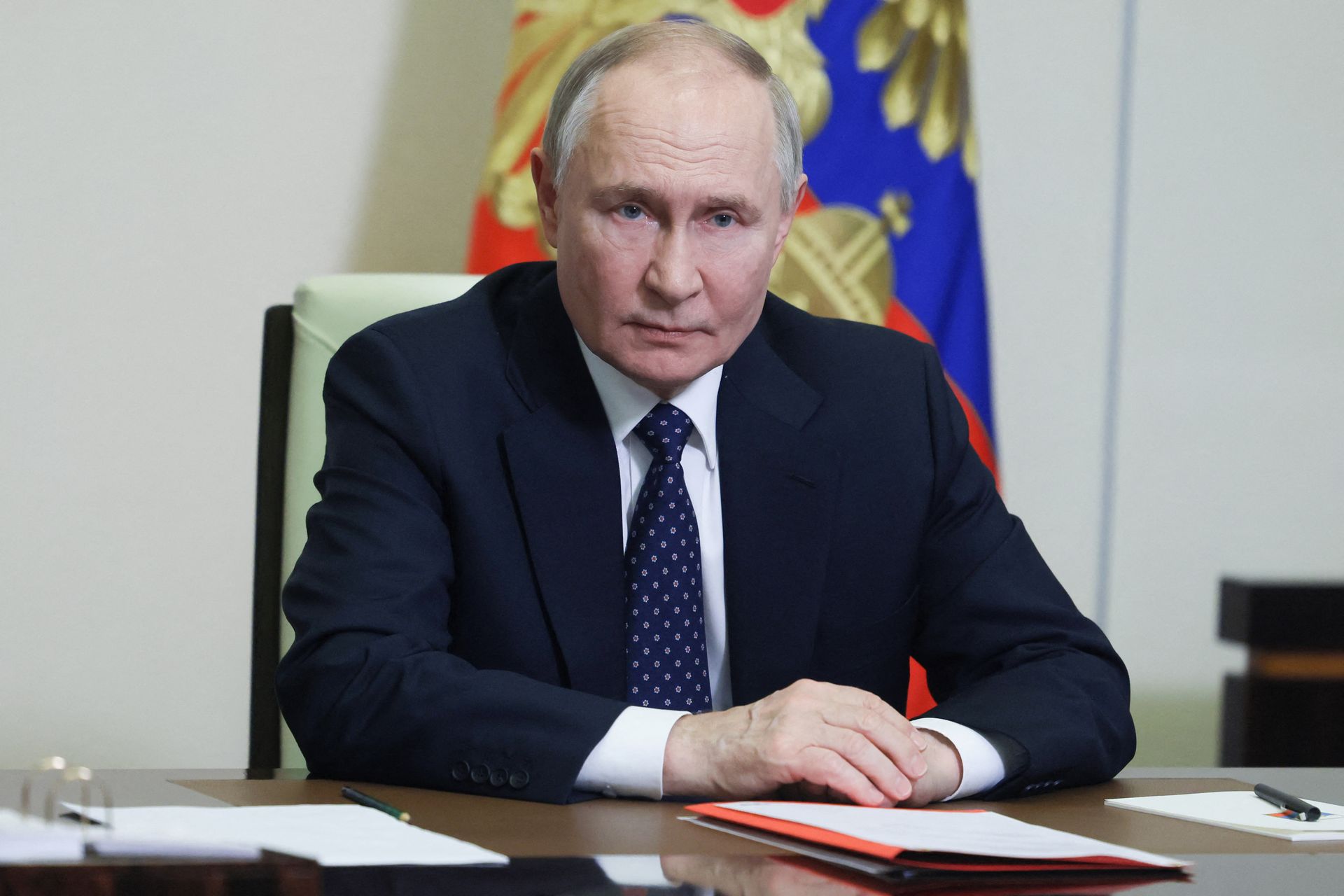The Council of Europe on May 14 approved the creation of a special tribunal to prosecute Russia's top leadership for the crime of aggression against Ukraine, Ukrainian lawmaker Maria Mezentseva reported.
Viktoria Roshchyna, 27, disappeared in August 2023 while reporting from Ukraine's Russian-occupied territories. Moscow admitted she was in Russian detention the following year.
European foreign ministers approved the creation of a special tribunal for the crime of aggression against Ukraine during a meeting in Lviv on May 9. The tribunal, which will operate under the auspices of the Council of Europe, aims to prosecute Russia's top political and military leadership, including President Vladimir Putin. Ukraine expects the tribunal to start work in 2026. The Kyiv Independent’s Kateryna Hodunova spoke with Dutch Justice Minister David van Weel about the future tribunal and its role in bringing justice for Ukraine.
Turkish officials told Bloomberg that while they don't expect Trump to visit Istanbul, they are not ruling it out, and preparations for any scenario are underway.
The air raid was announced at around 2:30 p.m. local time, while the explosion sounded around 2:50 p.m.
Melkonyants was arrested in August 2023 in connection with the activities of the European Network of Election Monitoring Organizations (ENEMO), which was co-founded by Golos's legal predecessor, the Golos association.
Ukraine's underground storage facilities are currently using 19.4% of their capacity. Almost 32%, or 2.79 bcm, less gas is available in the storages than in the previous year, according to the estimates.
The majority of Ukrainians, 71%, do not support holding elections before a full peace deal, even in the case of a ceasefire and security guarantees, according to a poll published by the Kyiv International Institute of Sociology (KIIS) on May 14.
"He'd like me to be there, and that's a possibility. ... I don't know that he would be there if I'm not there. We're going to find out," U.S. President Donald Trump told reporters aboard Air Force One while traveling to Qatar, Reuters reported.
Trump has long demanded that NATO allies increase their military spending, previously calling for the alliance to raise its benchmark from 2% to 5% of GDP.
Two of the suspects were reportedly detained over the weekend, and the third on May 13, during police raids in Germany and Switzerland.
More than 1,000 Russian government entities and 1,200 private companies are involved in the economy of occupied Mariupol, a major southeastern city occupied by Russia after it invaded Ukraine in 2022, according to a research paper published on May 14.
This marks Zelensky's highest trust rating recorded by KIIS since December 2023, when he enjoyed the confidence of 77% of respondents.
Trump says he's unsure whether Putin will attend Ukraine peace talks in Turkey as Kremlin stays silent

U.S. President Donald Trump said on May 14 that he is unsure whether Russian President Vladimir Putin will attend peace talks with Ukraine in Turkey on May 15.
"He'd like me to be there, and that's a possibility... I don't know that he would be there if I'm not there. We're going to find out," Trump told reporters aboard Air Force One while traveling to Qatar, Reuters reported.
President Volodymyr Zelensky has invited Putin to hold ceasefire talks in Turkey this week in what would be the first direct negotiations between Moscow and Kyiv since 2022.
Russia has confirmed that it will dispatch a delegation but declined to confirm Putin's participation. Russian lawmaker Leonid Slutsky hinted that the delegation's composition would be announced on the evening of May 14.
According to a former Russian official who spoke to the Washington Post, Moscow will be represented by Foreign Minister Sergey Lavrov and Putin’s foreign policy aide, Yuri Ushakov.
Without confirming his attendance, Ushakov told journalists that the Russian delegation's composition will be based on the range of political and technical issues that should be discussed.
Trump has voiced optimism about the possible meeting of the two leaders and suggested he might attend as well.
"Thursday's meeting between Russia and Ukraine is very important. I strongly pushed for it to happen. I think good things can come from it," the U.S. president said earlier this week.
Zelensky welcomed Trump's potential participation while calling upon the U.S. leader to realize that Putin continues to manipulate and obstruct peace efforts. Ukraine and its allies have called for an unconditional 30-day ceasefire starting on May 12 as the first step toward peace – a proposal ignored by Russia.
"If Putin does not arrive and plays games, it is the final point that he does not want to end the war," Zelensky said in Kyiv on May 13.
The White House has grown increasingly frustrated with the stalled peace efforts as the self-imposed 100-day deadline to broker a deal has passed. The U.S. president has been critical of both Ukraine and Russia, blaming them for the deadlock in the negotiations.

Most Popular

After 3 years of full-scale war in Ukraine, Europe announces plan to ban all Russian gas imports

Journalist Roshchyna's body missing organs after Russian captivity, investigation says

Ukrainian sea drone downs Russian fighter jet in 'world-first' strike, intelligence says

Ukraine is sending the war back to Russia — just in time for Victory Day

Kremlin says Russia ready for mass mobilization like in WWII 'at any moment'
Editors' Picks

How medics of Ukraine’s 3rd Assault Brigade deal with horrors of drone warfare

As Russia trains abducted children for war, Ukraine fights uphill battle to bring them home

'I just hate the Russians' — Kyiv district recovers from drone strike as ceasefire remains elusive



